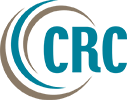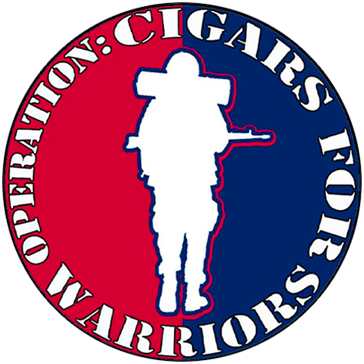Cast Iron Piston Rings
Search in Category
Filter Your Search
 Category Group
Category Group
 Cross Section
Cross Section
 Material
Material
 Nominal Outer Diameter
Nominal Outer Diameter
Shop by Category
End clearance on piston rings depends on ring design, material andapplication. The following end clearances are provided as a standard for hydraulic cylinder applications. When using iron piston rings, it is crucial to use the correct groove design for proper performance of the cylinder. Please use the following guidelines when cutting an iron piston ring groove.
GROOVE WIDTH: To permit the ring to slide freely into the groove, the groove must be at least 0.001” wider than the maximum piston ring width with a tolerance of +0.003”/-0.000”.
GROOVE DEPTH: Grooves must be at least 0.015” deeper than the maximum radial wall thickness of the piston ring with a tolerance of +0.003”/-0.000”. This is to avoid any possibility of the ring bottoming in the groove when the ring is compressed to its working diameter.
RADIAL CLEARANCE: The radial clearance between the cylinder bore and piston should be less than 1/3 of the radial wall thickness of the piston ring to ensure sealing effectiveness.
Iron Material | 0.167 in Cross Section | Piston Seal
End clearance on piston rings depends on ring design, material andapplication. The following end clearances are provided as a standard for hydraulic cylinder applications. When using iron piston rings, it is crucial to use the correct groove design for proper performance of the cylinder. Please use the following guidelines when cutting an iron piston ring groove.
GROOVE WIDTH: To permit the ring to slide freely into the groove, the groove must be at least 0.001” wider than the maximum piston ring width with a tolerance of +0.003”/-0.000”.
GROOVE DEPTH: Grooves must be at least 0.015” deeper than the maximum radial wall thickness of the piston ring with a tolerance of +0.003”/-0.000”. This is to avoid any possibility of the ring bottoming in the groove when the ring is compressed to its working diameter.
RADIAL CLEARANCE: The radial clearance between the cylinder bore and piston should be less than 1/3 of the radial wall thickness of the piston ring to ensure sealing effectiveness.
Iron Material | 0.19 in Cross Section | Piston Seal
End clearance on piston rings depends on ring design, material andapplication. The following end clearances are provided as a standard for hydraulic cylinder applications. When using iron piston rings, it is crucial to use the correct groove design for proper performance of the cylinder. Please use the following guidelines when cutting an iron piston ring groove.
GROOVE WIDTH: To permit the ring to slide freely into the groove, the groove must be at least 0.001” wider than the maximum piston ring width with a tolerance of +0.003”/-0.000”.
GROOVE DEPTH: Grooves must be at least 0.015” deeper than the maximum radial wall thickness of the piston ring with a tolerance of +0.003”/-0.000”. This is to avoid any possibility of the ring bottoming in the groove when the ring is compressed to its working diameter.
RADIAL CLEARANCE: The radial clearance between the cylinder bore and piston should be less than 1/3 of the radial wall thickness of the piston ring to ensure sealing effectiveness.
Iron Material | 0.19 in Cross Section | Piston Seal
End clearance on piston rings depends on ring design, material andapplication. The following end clearances are provided as a standard for hydraulic cylinder applications. When using iron piston rings, it is crucial to use the correct groove design for proper performance of the cylinder. Please use the following guidelines when cutting an iron piston ring groove.
GROOVE WIDTH: To permit the ring to slide freely into the groove, the groove must be at least 0.001” wider than the maximum piston ring width with a tolerance of +0.003”/-0.000”.
GROOVE DEPTH: Grooves must be at least 0.015” deeper than the maximum radial wall thickness of the piston ring with a tolerance of +0.003”/-0.000”. This is to avoid any possibility of the ring bottoming in the groove when the ring is compressed to its working diameter.
RADIAL CLEARANCE: The radial clearance between the cylinder bore and piston should be less than 1/3 of the radial wall thickness of the piston ring to ensure sealing effectiveness.
Iron Material | 0.206 in Cross Section | Piston Seal
End clearance on piston rings depends on ring design, material andapplication. The following end clearances are provided as a standard for hydraulic cylinder applications. When using iron piston rings, it is crucial to use the correct groove design for proper performance of the cylinder. Please use the following guidelines when cutting an iron piston ring groove.
GROOVE WIDTH: To permit the ring to slide freely into the groove, the groove must be at least 0.001” wider than the maximum piston ring width with a tolerance of +0.003”/-0.000”.
GROOVE DEPTH: Grooves must be at least 0.015” deeper than the maximum radial wall thickness of the piston ring with a tolerance of +0.003”/-0.000”. This is to avoid any possibility of the ring bottoming in the groove when the ring is compressed to its working diameter.
RADIAL CLEARANCE: The radial clearance between the cylinder bore and piston should be less than 1/3 of the radial wall thickness of the piston ring to ensure sealing effectiveness.
Iron Material | 0.205 in Cross Section | Piston Seal
End clearance on piston rings depends on ring design, material andapplication. The following end clearances are provided as a standard for hydraulic cylinder applications. When using iron piston rings, it is crucial to use the correct groove design for proper performance of the cylinder. Please use the following guidelines when cutting an iron piston ring groove.
GROOVE WIDTH: To permit the ring to slide freely into the groove, the groove must be at least 0.001” wider than the maximum piston ring width with a tolerance of +0.003”/-0.000”.
GROOVE DEPTH: Grooves must be at least 0.015” deeper than the maximum radial wall thickness of the piston ring with a tolerance of +0.003”/-0.000”. This is to avoid any possibility of the ring bottoming in the groove when the ring is compressed to its working diameter.
RADIAL CLEARANCE: The radial clearance between the cylinder bore and piston should be less than 1/3 of the radial wall thickness of the piston ring to ensure sealing effectiveness.
Iron Material | 0.16 in Cross Section | Piston Seal
Machined from iron, most employ an overlapped joint which allows the passing of ports.
Iron Material | 5 MM Cross Section | Piston Ring
End clearance on piston rings depends on ring design, material andapplication. The following end clearances are provided as a standard for hydraulic cylinder applications. When using iron piston rings, it is crucial to use the correct groove design for proper performance of the cylinder. Please use the following guidelines when cutting an iron piston ring groove.
GROOVE WIDTH: To permit the ring to slide freely into the groove, the groove must be at least 0.001” wider than the maximum piston ring width with a tolerance of +0.003”/-0.000”.
GROOVE DEPTH: Grooves must be at least 0.015” deeper than the maximum radial wall thickness of the piston ring with a tolerance of +0.003”/-0.000”. This is to avoid any possibility of the ring bottoming in the groove when the ring is compressed to its working diameter.
RADIAL CLEARANCE: The radial clearance between the cylinder bore and piston should be less than 1/3 of the radial wall thickness of the piston ring to ensure sealing effectiveness.
Iron Material | 0.075 in Cross Section | Piston Seal
END CLEARANCE End clearance on piston rings depends on ring design, material andapplication. The following end clearances are provided as a standard for hydraulic cylinder applications. When using iron piston rings, it is crucial to use the correct groove design for proper performance of the cylinder. Please use the following guidelines when cutting an iron piston ring groove. GROOVE WIDTH: To permit the ring to slide freely into the groove, the groove must be at least 0.001” wider than the maximum piston ring width with a tolerance of +0.003”/-0.000”. GROOVE DEPTH: Grooves must be at least 0.015” deeper than the maximum radial wall thickness of the piston ring with a tolerance of +0.003”/-0.000”. This is to avoid any possibility of the ring bottoming in the groove when the ring is compressed to its working diameter. RADIAL CLEARANCE: The radial clearance between the cylinder bore and piston should be less than 1/3 of the radial wall thickness of the piston ring to ensure sealing effectiveness.
Iron Material | | Piston Seal
Features
- Easy assembly
- Low friction capabilities
End clearance on piston rings depends on ring design, material andapplication. The following end clearances are provided as a standard for hydraulic cylinder applications. When using iron piston rings, it is crucial to use the correct groove design for proper performance of the cylinder. Please use the following guidelines when cutting an iron piston ring groove.
GROOVE WIDTH: To permit the ring to slide freely into the groove, the groove must be at least 0.001” wider than the maximum piston ring width with a tolerance of +0.003”/-0.000”.
GROOVE DEPTH: Grooves must be at least 0.015” deeper than the maximum radial wall thickness of the piston ring with a tolerance of +0.003”/-0.000”. This is to avoid any possibility of the ring bottoming in the groove when the ring is compressed to its working diameter.
RADIAL CLEARANCE: The radial clearance between the cylinder bore and piston should be less than 1/3 of the radial wall thickness of the piston ring to ensure sealing effectiveness.
Iron Material | 0.095 in Cross Section | Piston Seal










